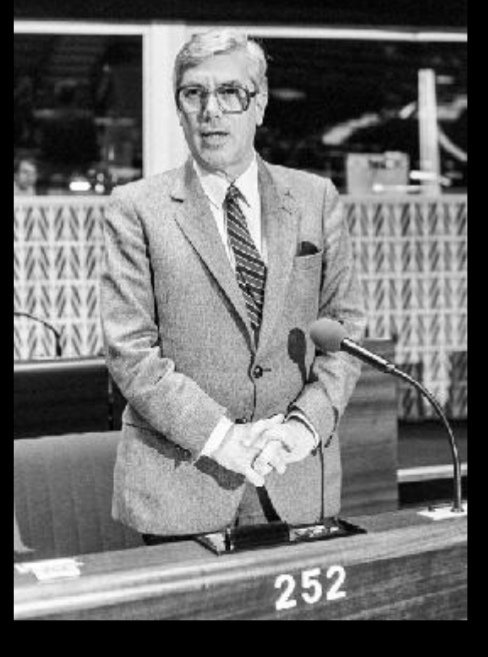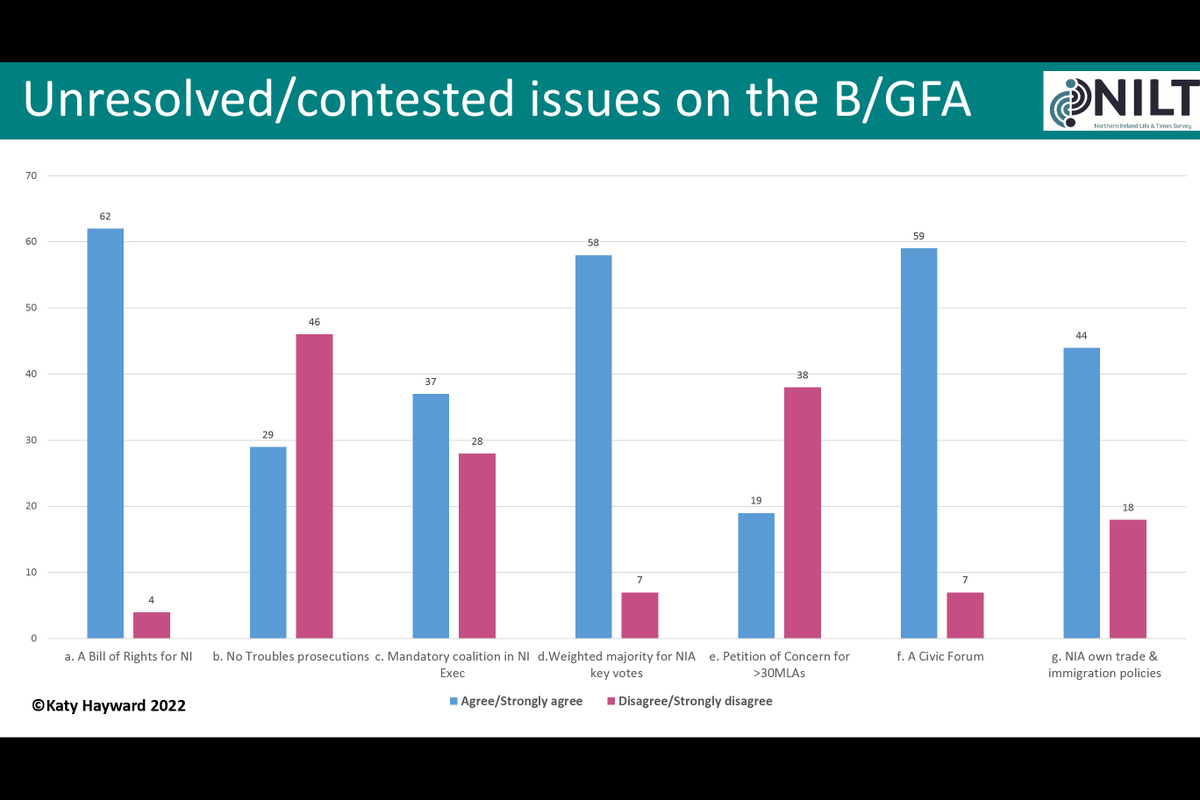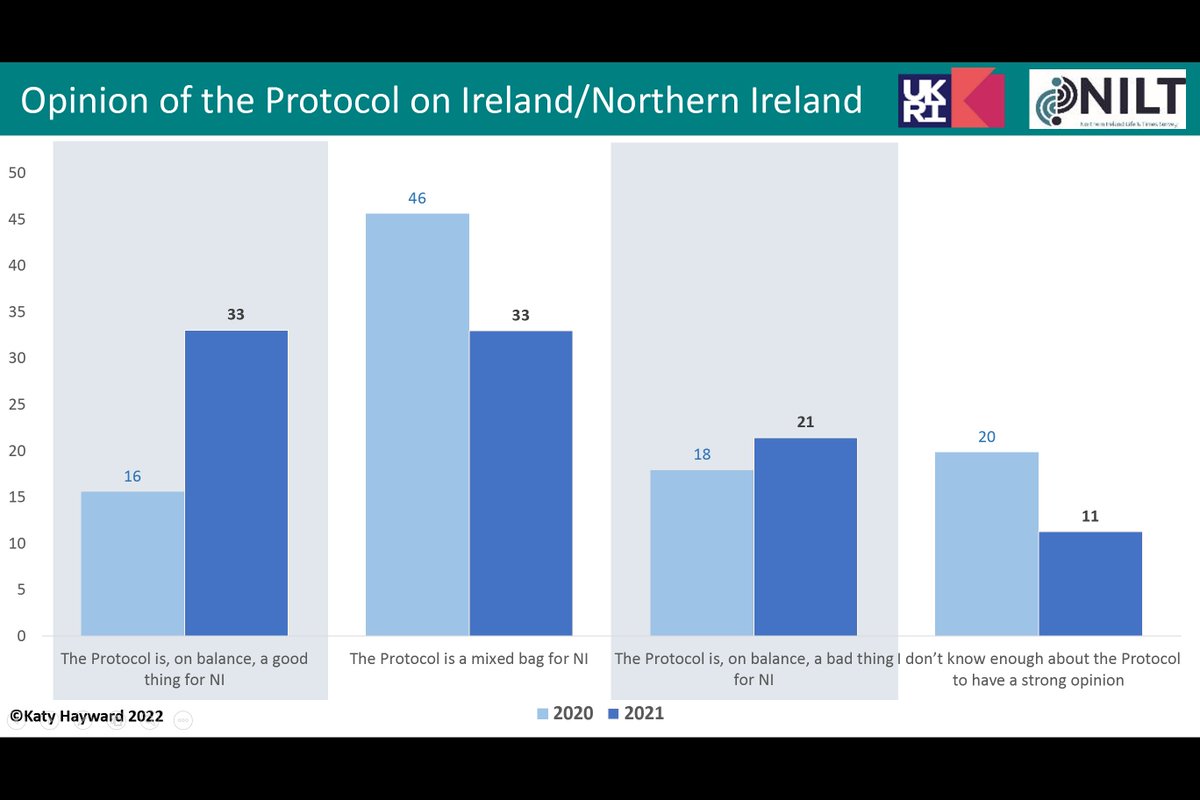THE KEY QUESTION at the nub of the fuss re: #Brexit, the #backstop & @BorderIrish is this:
What the heck has the European Union got to do with #peace here❓
Well, the ANSWER is, when all's said & done, pretty simple.
It’s about the British-Irish relationship.
THREAD 👇
1/
What the heck has the European Union got to do with #peace here❓
Well, the ANSWER is, when all's said & done, pretty simple.
It’s about the British-Irish relationship.
THREAD 👇
1/
This was acknowledged by the EU itself 35yrs ago in the Haagerup Report on resolving the conflict.
I'll explain this now by summarising my paper from Cooperation&Conflict @SAGECQPolitics.
[& you can see the Report here. Hurrah for @CAINWebService] 👉
2/
I'll explain this now by summarising my paper from Cooperation&Conflict @SAGECQPolitics.
[& you can see the Report here. Hurrah for @CAINWebService] 👉
2/
https://twitter.com/CAINWebService/status/1146800445312110594
111 people were killed in 1981.
In May 1981, @EuroParl_EN passed a Resolution recognising the EU had ‘no competence to make proposals for changes in the Constitution of N.Ireland’.
110 were killed in 1982.
The Troubles were raging. And there was little prospect of resolution.
3/
In May 1981, @EuroParl_EN passed a Resolution recognising the EU had ‘no competence to make proposals for changes in the Constitution of N.Ireland’.
110 were killed in 1982.
The Troubles were raging. And there was little prospect of resolution.
3/

A number of MEPs tabled motions seeking to address:
‘one of the gravest political and social problems existing in the Community’.
And so in 1983 the Political Affairs Committee of the European Parliament commissioned Dutch MEP Nils Haagerup to write a Report.
4/
‘one of the gravest political and social problems existing in the Community’.
And so in 1983 the Political Affairs Committee of the European Parliament commissioned Dutch MEP Nils Haagerup to write a Report.
4/
The Report was intended to:
(a) Explain the root causes of the Troubles to MEPs
[inevitably, in outlining an historical narrative, it stepped into controversial ground] 🇬🇧🇮🇪
+
(b) To see how the EU could offer assistance
[in addition to economic support already rendered]. 🕊️
5/
(a) Explain the root causes of the Troubles to MEPs
[inevitably, in outlining an historical narrative, it stepped into controversial ground] 🇬🇧🇮🇪
+
(b) To see how the EU could offer assistance
[in addition to economic support already rendered]. 🕊️
5/
The reaction was typical of the time.
It was rejected by British & Unionist MEPs who on principle objected to the EU interfering in a domestic concern.
In contrast, Irish & Nationalist MEPs welcomed it precisely because they saw the conflict as an international issue.
6/
It was rejected by British & Unionist MEPs who on principle objected to the EU interfering in a domestic concern.
In contrast, Irish & Nationalist MEPs welcomed it precisely because they saw the conflict as an international issue.
6/

It is worth looking at the 4 tenets of the Haagerup Report as they have particular pertinence today. #Brexit
👇
TL;DR: Both British & Irish traditions/identities in NI need to be accommodated.
Thus for peace in NI the British-Irish relationship needs to be one of cooperation.
7/
👇
TL;DR: Both British & Irish traditions/identities in NI need to be accommodated.
Thus for peace in NI the British-Irish relationship needs to be one of cooperation.
7/
Tenet 1: Cause of the conflict is British-Irish antagonism.
At the heart of EU’s approach to the conflict is the belief that it's caused by historical antagonism between British & Irish nationalisms & identities.
Such tensions, Haagerup said, are manifest within N.Ireland.
8/
At the heart of EU’s approach to the conflict is the belief that it's caused by historical antagonism between British & Irish nationalisms & identities.
Such tensions, Haagerup said, are manifest within N.Ireland.
8/

Tenet 2: Defuse the conflict via British-Irish cooperation.
Haagerup draws a fundamental connection between the conflict between 'the two communities’ & the tension between the two governments.
The motion for a resolution therefore states that:
9/
Haagerup draws a fundamental connection between the conflict between 'the two communities’ & the tension between the two governments.
The motion for a resolution therefore states that:
9/

Tenet 3: Conflict resolution = peaceful, democratic expression of national identities.
Toleration, rather than transformation, of the identities in the conflict is the goal the EU sets in relation to NI.
I couldn’t say it better than in the 2006 paper:
[sorry, long extract]
10/
Toleration, rather than transformation, of the identities in the conflict is the goal the EU sets in relation to NI.
I couldn’t say it better than in the 2006 paper:
[sorry, long extract]
10/

Tenet 4: Strict limitations on any role for EU.
This may surprise some.
It is clear from the Haagerup Report that the EU is acutely aware of the limitations on its capacity to effect change in N.Ireland...
11/
This may surprise some.
It is clear from the Haagerup Report that the EU is acutely aware of the limitations on its capacity to effect change in N.Ireland...
11/
According to Haagerup, in areas relating to political change in NI, the EU is confined to a supportive role for peaceful measures taken by the British govt & (it urges) by British & Irish governments together.
🇪🇺🇬🇧🇮🇪
12/
🇪🇺🇬🇧🇮🇪
12/
Even in economic development & support, Haagerup recognises that improved cross-border trade depends on British-Irish relations & each state's own approach to the EU.
💷💶
(Relevant, much?)
13/
💷💶
(Relevant, much?)
13/
In fact, the only unique and independent contribution the EU can make according to Haagerup (1984:74) is to:
‘provide the #inspiration for the people of Northern Ireland to oppose and reject violence’.
🕊️
That's quite a quote. And quite a claim.
14/
‘provide the #inspiration for the people of Northern Ireland to oppose and reject violence’.
🕊️
That's quite a quote. And quite a claim.
14/
In sum, this Report's approach to the conflict in NI is as one that could *only* be resolved through close British-Irish cooperation.
After all, that's the EU's own self-defined model of conflict resolution: supersede a history of conflict with new forms of cooperation.
15/
After all, that's the EU's own self-defined model of conflict resolution: supersede a history of conflict with new forms of cooperation.
15/
Finally, reflect a moment on this quote from the #Haagerup Report.
If I could I'd print it off & wear it.
Because it explains my professional work as well my personal experience.
As it does for so many.
At times like these, it's worth stating the obvious.
#MixedUpTogether
16/
If I could I'd print it off & wear it.
Because it explains my professional work as well my personal experience.
As it does for so many.
At times like these, it's worth stating the obvious.
#MixedUpTogether
16/

H/T @Laurence_Cooley for headsup this is on @CAINWebService!
In my day, I had to make a special request @UCDlibrary document library & save up photocopying credits… 👵
& Here’s a link to my full paper on the topic [pre-print, so ignore the typos]
ucd.ie/ibis/filestore…
/ENDS
In my day, I had to make a special request @UCDlibrary document library & save up photocopying credits… 👵
& Here’s a link to my full paper on the topic [pre-print, so ignore the typos]
ucd.ie/ibis/filestore…
/ENDS
* Correction - Niels Jorgen Haagerup was an MEP from Denmark. 🇩🇰
Born in 1925, he had been active in the resistance to the German occupation.
H/T Thomas Elliot.
Photo: @europarl
Born in 1925, he had been active in the resistance to the German occupation.
H/T Thomas Elliot.
Photo: @europarl

• • •
Missing some Tweet in this thread? You can try to
force a refresh
















